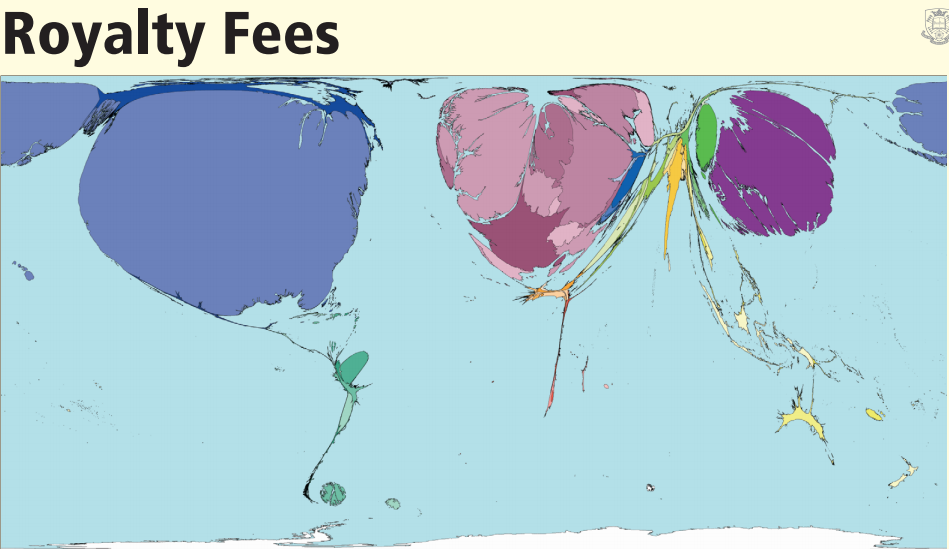Trade, Access to Knowledge, and Digital Rights
Pranesh Prakash
Fellow
Centre for Internet and Society
Affiliated Fellow
Information Society Project, Yale Law School
Public Interest Technology Fellow
New America
CC-BY-SA 4.0: (copy, share, adapt: sharing is caring)
no proprietary standards or software were used in the making of this slide deck
Intellectual "Property"
Patents, Trademark, Copyright, Trade Secrets, Industrial Design, Integrated Circuit Layout, Biodiversity, Plant Variety, Geographical Indicators, etc.:
Not "Property".
Government-granted limited monopolies.
Access to Knowledge and International Trade

http://archive.worldmapper.org/posters/worldmapper_map168_ver5.pdf
Access to Knowledge and Development


WTO and A2K
Agreement on "Trade-Related Aspects of Intellectual Property Rights", 1994.
Set a very high floor for IP protection
TRIPS and A2K
Statement by Debabrata Saha, Deputy Permanent Representative of India
October 1, 2004
"[W]ith all the damage that TRIPS has wrought on developing countries could it possibly have a silver lining? Maybe — if we want to be generous. TRIPS, one might argue, did bring intellectual property to the forefront of consciousness of people everywhere, and, over time made them aware of the dangers inherent in a protective regime that takes little account of either public policy, or the state of development of a member country."
TRIPS and A2K
Bargain meant to push for "transfer of technology".
But no such transfers.
(China is the exception.)

Plurilateral Trade Agreements
-
Anti-Counterfeiting Trade Agreement -
Regional Comprehensive Economic Partnership
- ASEAN+
- Australia, China, India, Japan, South Korea and NZ
-
Trans-Pacific Partnership -
(CPA) Trans-Pacific Partnership
- Dropped 22 provisions in IP chapter.
No TPM/DRM, Signal encryption, Life+70, etc.
- Dropped 22 provisions in IP chapter.
All of these are "TRIPS+" and "TRIPS++".
Harms developing countries most.
Plurilateral Trade Agreements
No Transparency
RCEP
Only leaked IP chapter from 2015.
Only government and private sector
No academics, no civil society
Digital Rights
Should using images/video in a presentation (with acknowledgment) be illegal?
Should playing YouTube video during a break be illegal?
Should students photocopying some pages from a text book be illegal?
Should search engines be illegal?
Digital Rights
Are user/consumer rights part of international trade?
Yes.
But no provisions in any trade agreement.
No export of exceptions, limitations, "fair use" standards.
Trade, Access to Knowledge, and Digital Rights
By Pranesh Prakash
Trade, Access to Knowledge, and Digital Rights
- 1,465



